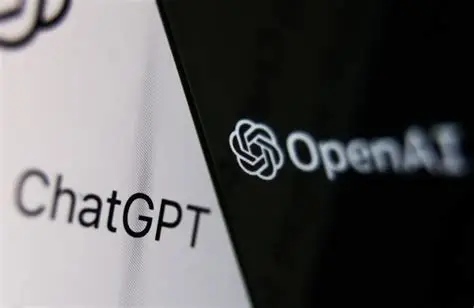OpenAI’s ChatGPT Atlas browser launch triggered a $100 billion drop in Google’s market value within 15 minutes. Discover how this AI-powered browser challenges Chrome’s dominance and redefines web browsing.
📉 What Just Happened?
On October 21st, OpenAI launched its new AI-integrated browser, ChatGPT Atlas. Within just 15 minutes of the announcement, Alphabet Inc.—Google’s parent company—saw its market value plummet by $100 billion. This wasn’t a typical market fluctuation. It was a direct response to the perceived threat ChatGPT Atlas poses to Google Chrome, which currently dominates the global browser market with a ~70% share.
🧠 What Is ChatGPT Atlas?
ChatGPT Atlas is a Chromium-based browser, meaning it’s built on the same open-source foundation as Google Chrome. However, it’s not just another Chrome clone. What sets Atlas apart is its deep integration with AI—specifically, ChatGPT.

- AI-Powered Interface: Users can interact with web pages using natural language. For example, instead of reading a long article, you can ask Atlas to summarize it instantly.
- Smart Automation: Tasks like filling out forms (e.g., IRCTC train bookings) can be completed in seconds.
- Data Comparison & Anonymization: Atlas offers tools to compare and anonymize data, enhancing productivity and privacy.
⚔️ Chrome vs Atlas: A Real Threat?
While Chrome has been the undisputed leader in browser technology, Atlas introduces features that could disrupt this dominance:
| Feature | Google Chrome | ChatGPT Atlas |
|---|---|---|
| AI Integration | Limited | Deeply embedded |
| Page Summarization | Manual reading | Instant AI summary |
| Form Automation | Extensions needed | Built-in AI |
| Data Privacy | Established protocols | Still under scrutiny |
If Atlas gains popularity, it could reduce Chrome usage, directly impacting Google’s ad revenue—the backbone of its business model.
🔐 Is It Safe?
Security is a major concern with any AI-powered tool. OpenAI claims that ChatGPT Atlas won’t save user data without explicit permission. However, questions remain:
- Banking Risks: If users log into sensitive accounts, could AI access passwords or balances?
- AI Memory: AI systems sometimes retain data unintentionally. How much control does OpenAI have over this?
- Accuracy Issues: AI-generated summaries and answers can be incorrect, raising reliability concerns.
While Google Chrome is considered safe and mature, Atlas is still in its early stages and must prove its trustworthiness.
🌍 Availability & Future Outlook
Currently, ChatGPT Atlas is available only on macOS. OpenAI has announced upcoming releases for Windows, iOS, and Android. Once it becomes cross-platform, its impact on the browser market could be significant.
💬 Final Thoughts
ChatGPT Atlas isn’t just a browser—it’s a statement. By merging AI with everyday browsing, OpenAI is challenging the very foundation of how we interact with the web. Whether it dethrones Chrome or not, it’s clear that the future of browsing is intelligent, conversational, and deeply personalized.
Leave a Reply Cancel reply